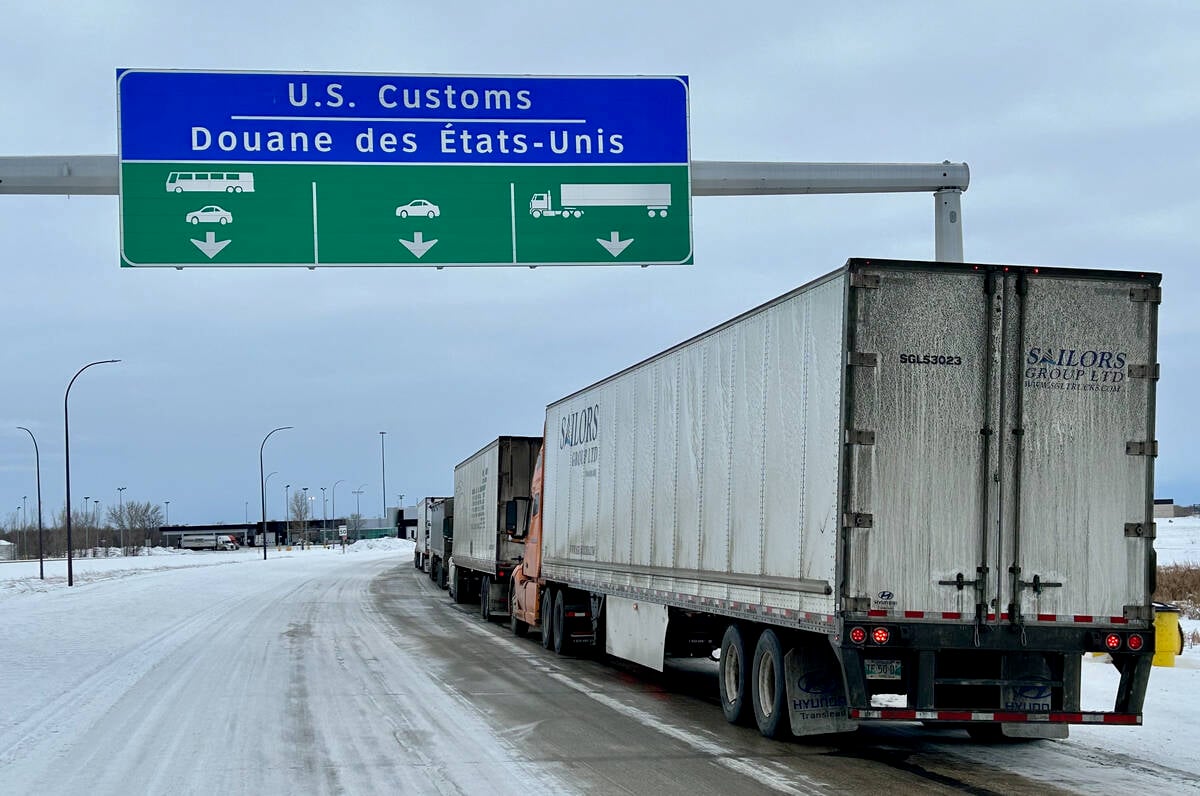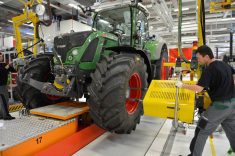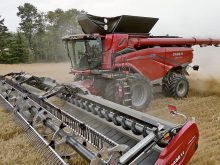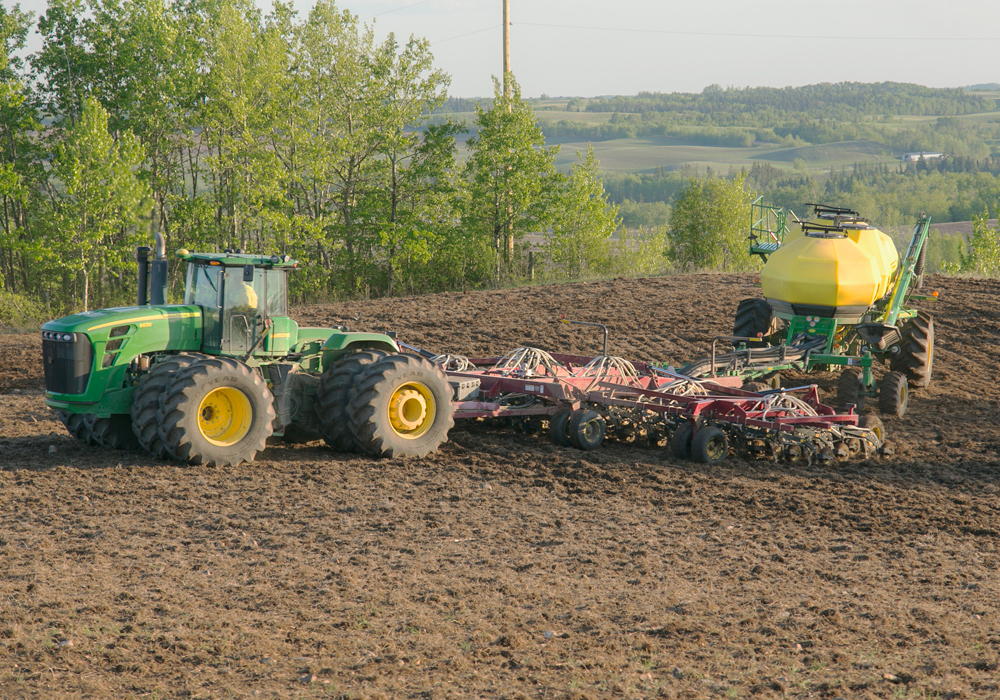Western Equipment Dealers Association says 1,000 mechanics are needed in Western Canada
Equipment dealers in Western Canada face a labour shortage that won’t likely be eased anytime soon.
The shortage of trained mechanics is the main issue for members of the Western Equipment Dealers Association, who met in Regina last week for their annual convention.
“Our recent surveys show that we need 1,000 in Western Canada right now, and that’s even before we account for eight percent that are leaving the industry every year,” said chief executive officer John Schmeiser.
“There are 450 in Saskatchewan alone that our dealers would take right now with the existing capacity they have with the size of their shops and the demand that’s coming from the customer.”
Read Also

U.S. bill could keep out Canadian truckers
The Protecting America’s Roads Act, which was tabled in the U.S. House of Representatives at the beginning of October, would “rid the country of illegal immigrant commercial truck drivers and ineligible foreign nationals.”
He said the slowdown in the oil sector might help agricultural dealerships in the short term.
The association has been doing what it can to encourage more people to enter the industry for the long haul.
It has provided $250,000 to Parkland Regional College’s Trades and Technology Centre to support the training of 24 agricultural mechanics. It also contributed $57,000 to double the intake in Saskatchewan Polytechnic’s agricultural machinery technician program in 2013, premier Brad Wall said in a speech to delegates.
He said government appreciates the efforts of industry and will do what it can to make it easier for businesses to find and keep workers.
For example, Saskatchewan asked the federal government to raise the cap on the provincial immigrant nominee program from 4,725 to 6,000. In December, Ottawa said it would increase the province’s nominations to 5,500, and those 775 new nominees would be eligible for new Express Entry applications.
“The labour shortage is not a short-term proposition,” Wall said.
“We need more skilled workers in this province. That’s not a passing fad.”
Schmeiser said trade missions have successfully recruited workers in the past and will continue to do so.
Consolidation at the ownership level in the equipment industry belies the fact it is still an expanding business in need of workers, he added.
“That’s being driven by the manufacturers,” he said.
“They’re suggesting the ideal dealership model is an ownership group that’s well capitalized, that has numerous locations as opposed to each individual store being individually owned.”
Dealers are also concerned about inventory.
“In some areas on new equipment sales, we’ve seen a drop off in 2014 of about 20 percent over the previous year,” Schmeiser said.
He believes it is a minor correction after the best year ever in 2013. However, he said dealers take trades in 95 percent of transactions.
“There is a little bit of excess inventory, and what our dealers are looking for are ways to move that excess inventory,” he said.
In Saskatchewan, dealers are also looking for a regulatory change at SaskPower to eliminate a five-day waiting period to move equipment that is over the maximum height allowance of 18 feet, six inches.
“If we have a combine that breaks down in a farmer’s field and it has a hopper extender on top of it, if we put that on a truck and transport it into the dealership to fix it, it takes us up to five days to get a permit before we can move it legally down the highway,” he said.
“Then once we fix the combine, we have to wait another five days before we can transport it back to the farmer.”
Saskatchewan dealers want a blanket permit similar to what their Manitoba counterparts receive from Manitoba Hydro once a year.
WEDA is a new moniker for the former Canada West Equipment Dealers Association, which merged last Sept. 1 with the SouthWestern Association representing dealers in Missouri, Kansas, Oklahoma, Texas and New Mexico. It now represents 1,000 dealerships, including 400 in Canada.
Peter Lacey, executive chair of Cervus Equipment, was named 2014 Canadian Dealer of the Year at the convention. Cervus has 1,800 employees at 68 dealerships around the world and is the only publicly traded John Deere dealership group.
karen.briere@producer.com

















